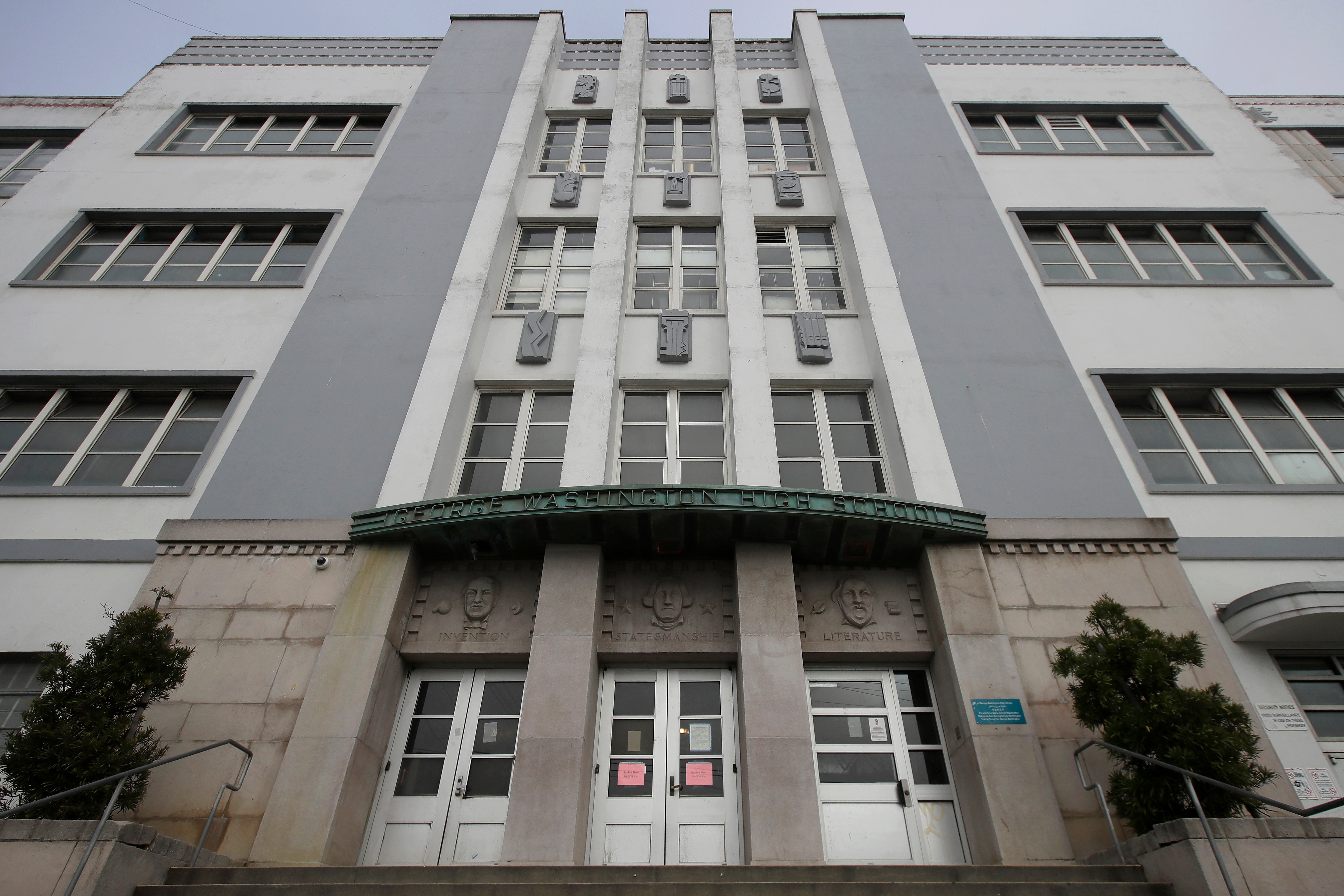Civil rights leaders unite around California ethnic studies
Educators and civil rights leaders in California called on the State Board of Education to approve the nation’s first statewide model ethnic studies curriculum for high school students

Your support helps us to tell the story
From reproductive rights to climate change to Big Tech, The Independent is on the ground when the story is developing. Whether it's investigating the financials of Elon Musk's pro-Trump PAC or producing our latest documentary, 'The A Word', which shines a light on the American women fighting for reproductive rights, we know how important it is to parse out the facts from the messaging.
At such a critical moment in US history, we need reporters on the ground. Your donation allows us to keep sending journalists to speak to both sides of the story.
The Independent is trusted by Americans across the entire political spectrum. And unlike many other quality news outlets, we choose not to lock Americans out of our reporting and analysis with paywalls. We believe quality journalism should be available to everyone, paid for by those who can afford it.
Your support makes all the difference.As America reels from its latest spate of deadly hate crimes and racism, educators and civil rights leaders in California called on the state Board of Education to approve the nation’s first statewide model ethnic studies curriculum for high school students.
At a meeting Thursday, board members were hearing an all-day presentation of the nearly 900-page document, followed by public comment, before the vote on final approval.
Educators and officials who spoke mourned this week’s killing of eight people, most of them Asian women, in Georgia, as the latest tragic example of racism but also a poignant reminder of the urgency of educating children about discrimination and oppression that textbooks often overlook.
“We are reminded daily that racism is not only a legacy of the past but a clear and present danger,” said Board of Education President Linda Darling-Hammond, who led President Joe Biden’s education transition team. “We must understand this history if we are finally to end it.”
The Model Ethnic Studies Curriculum, which has been years in the making, is meant to teach high school students about the struggles and contributions of “historically marginalized peoples which are often untold in U.S. history courses.” It centers on the four groups that are the focus of college-level ethnic studies: African Americans, Chicano/Latinos, Asian Americans and Pacific Islanders and Native Americans.
It also includes lesson plans on Jews, Arab Americans, Sikh Americans and Armenian Americans who are not traditionally part of an ethnic studies curriculum “but have important stories to tell about oppression and contributions” to California and the country, state Superintendent of Public Instruction Tony Thurmond said.
California Department of Education officials say this would be the first statewide ethnic studies model curriculum in the nation. Some other states have taken different approaches to teaching ethnic studies. Oregon is developing ethnic studies standards for its social studies curriculum, while Connecticut high schools will be required to offer courses in Black and Latino studies by the fall of 2022.
The course materials in California include 33 lesson plans, which schools are not required to use but can pick from to fit their student communities. More than three-quarters of California's 6.2 million K-12 students are non-white: 55% Latino, 22% white, 12% Asian or Pacific Islander and 5% African American.
One lesson plan suggests discussing an incident of police brutality as part of the Black Lives Matter movement. Another urges students to interview Korean Americans and Black residents who were in Los Angeles during the 1992 riots to study how existing tensions exploded into deadly violence. Other lessons ask students to study poetry and art by Japanese Americans put in internment camps during World War II to better understand the trauma and hostility they endured.
“This is a pivotal moment in our California education history,” said Karen Korematsu, the daughter of late civil rights icon Fred Korematsu, a Japanese American who resisted internment during World War II and took his battle all the way to the U.S. Supreme Court, where he ultimately lost but devoted his life to fighting for civil rights.
“As my father said, ‘Stand up for what is right.’ Prejudice is ignorance, and the most powerful weapon we have is education," Korematsu said.
The development of the curriculum took three years and drew more than 100,000 public comments as different groups sought to be included. The loudest criticism came from Jewish and pro-Arab groups who accused each other of trying to silence each other's histories.
“This criticism will continue. I can guarantee you that,” said California Secretary of State Shirley Weber, a former lawmaker and academic who created an ethnic studies program at San Diego State University in the 1970s. “We will not find the perfect curriculum but we have one that is strong.”
Renowned labor leader and civil rights activist Dolores Huerta also encouraged adoption.
“Si, Se Puede!” said Huerta, citing her famous phrase, “Yes we can!” that President Barack Obama borrowed as his campaign slogan. “We can make it happen. And it’s time.”